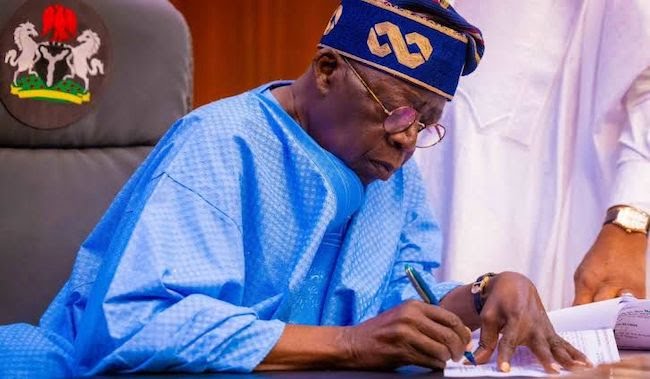Daud Olatunji
President Bola Tinubu has intervened to stop the proposed electricity tariff hike, while simultaneously demanding that subsidies be maintained to alleviate the financial burden on consumers nationwide.
These announcements were made by the Minister of Power, Adebayo Adelabu, during a press briefing held in Abuja on Wednesday.
One of the key issues addressed by the minister was the investigation into the legality of the five-year license extension granted to privatized power distribution and generation companies.
According to Adelabu, the operating licenses for these firms were set to expire on October 31, 2023.
The decision to maintain subsidies and delay the tariff hike comes as the government grapples with the complex challenges of the power sector.
Adelabu stated, “The power sector is an industry that is very sensitive to any leader. You cannot jump overnight and implement the cost reflective tariff.”
He went on to explain that the government is still subsidizing power to bridge the gap between the cost reflective tariff and the current allowed tariff.
This gap is impacting liquidity in the system and causing constraints on investments in the sector.
Adelabu emphasized that, although the tariff increase is essential for the sector’s sustainability, it cannot be implemented during a time of economic hardship for the citizens.
Adelabu also pointed out that about 75 to 80 percent of Nigeria’s power is generated from gas power plants, and the cost of gas is affected by fluctuations in the exchange rate.
He stressed that tariff adjustments would only occur after extensive public sensitization and communication and assured regular and incremental power supply.
Furthermore, the minister expressed his commitment to improving power generation, labeling the current state of power generation in Nigeria, approximately 4,000 megawatts, as “shameful and unacceptable.”
He warned that non-performing officials within the ministry and its agencies would be dismissed, in line with President Tinubu’s directive for ministers to deliver or be removed.
Adelabu questioned the 2013 privatization of the power sector, stating that commercialization might have been a better approach.
He hinted that the government might regain control of the power distribution companies, citing concerns about the large territories they cover and their underperformance.
Additionally, Adelabu announced an investigation into the five-year license extension granted to the power firms. He stated, “How legally correct was it, how contractually correct was the extension?”
On the possibility of supplying power to Niger Republic, the minister clarified that Nigeria has not yet commenced such an arrangement, and they are closely monitoring the situation in the neighboring country.
As the power sector continues to face challenges, the decision to halt the tariff hike and maintain subsidies has sparked discussions and debates about the best approach to ensuring affordable and reliable electricity for Nigerians.
Do you want to share a story with us? Do you want to advertise with us? Do you need publicity for a product, service, or event? Contact us on WhatsApp +2348183319097 Email: platformtimes@gmail.com
We are committed to impactful investigative journalism for human interest and social justice. Your donation will help us tell more stories. Kindly donate any amount HERE




